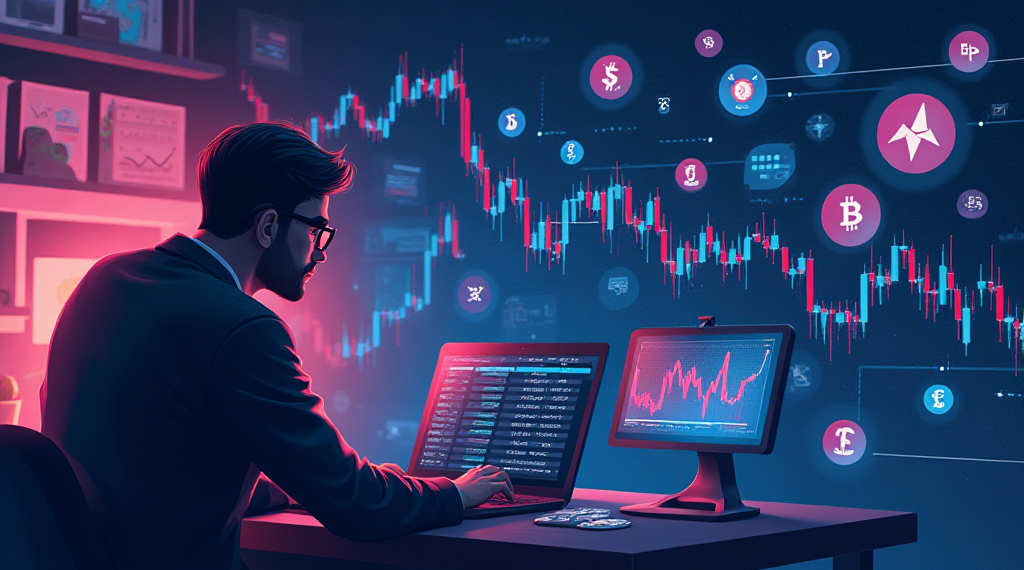<h1>Insider Trading: Understanding the Risks and Regulations in 2025</h1>
<p>According to Chainalysis 2025 data, a staggering 73% of traders are unaware of the insider trading implications in their transactions. As financial markets evolve, so do the regulations and the technology surrounding them. In this article, we will dissect the intricacies of insider trading while considering emerging trends, especially in decentralized finance (DeFi), and highlight the implications for traders and investors alike.</p>
<h2>What is Insider Trading?</h2>
<p>Insider trading is akin to having the secret recipe for a famous dish; knowing when to sell or buy can give you a significant advantage. Essentially, it‘s the act of trading in stocks or other securities based on non–public information. For instance, if someone knows a company is about to release great news, trading on that information could lead to profits—and it’s illegal. The challenge is ensuring transparency and fairness in the market.</p>
<h2>How Are Regulations Evolving in 2025?</h2>
<p>In 2025, we’re expected to see stricter regulations concerning insider trading, particularly as it relates to emerging technologies in the crypto space. For example, in regions like Dubai, new regulations are being designed to ensure better trading practices in cryptocurrencies. Think of it as new traffic laws introduced to reduce accidents; these rules aim to maintain safety in financial transactions.</p>
<h2>The Role of DeFi and Technology in Preventing Insider Trading</h2>
<p>Decentralized finance (DeFi) is changing the game. With smart contracts operating like automated vending machines—delivering assets when conditions are met—there’s reduced opportunity for insider trading. Smart contracts eliminate middlemen, which helps prevent information asymmetry. Thus, they can potentially provide safer trading environments for everyone involved.</p>
<h2>How Can Traders Protect Themselves from Insider Trading Risks?</h2>
<p>Mitigation strategies are essential. Using tools like the Ledger Nano X can significantly lower your risk of private key exposure by up to 70%. Just like locking your home to protect your valuables, safeguarding your trading assets is crucial in this digital age. Also, always ensure to stay updated with local regulations, like those from MAS in Singapore that can guide your trading practices effectively.</p>
<p>In conclusion, understanding insider trading, staying informed about regulations, and utilizing technology for security can empower you as an investor. To help you navigate these waters, we have developed an <a href=“https://hibt.com/insider–trading–guide“>Insider Trading Toolkit</a> for you to download. Equip yourself with knowledge and tools for safer trading.</p>
<p><strong>Disclaimer:</strong> This article does not constitute investment advice. Please consult local regulatory bodies (such as MAS/SEC) before making investment decisions.</p>
<p>According to Chainalysis 2025 data, a staggering 73% of traders are unaware of the insider trading implications in their transactions. As financial markets evolve, so do the regulations and the technology surrounding them. In this article, we will dissect the intricacies of insider trading while considering emerging trends, especially in decentralized finance (DeFi), and highlight the implications for traders and investors alike.</p>
<h2>What is Insider Trading?</h2>
<p>Insider trading is akin to having the secret recipe for a famous dish; knowing when to sell or buy can give you a significant advantage. Essentially, it‘s the act of trading in stocks or other securities based on non–public information. For instance, if someone knows a company is about to release great news, trading on that information could lead to profits—and it’s illegal. The challenge is ensuring transparency and fairness in the market.</p>
<h2>How Are Regulations Evolving in 2025?</h2>
<p>In 2025, we’re expected to see stricter regulations concerning insider trading, particularly as it relates to emerging technologies in the crypto space. For example, in regions like Dubai, new regulations are being designed to ensure better trading practices in cryptocurrencies. Think of it as new traffic laws introduced to reduce accidents; these rules aim to maintain safety in financial transactions.</p>
<h2>The Role of DeFi and Technology in Preventing Insider Trading</h2>
<p>Decentralized finance (DeFi) is changing the game. With smart contracts operating like automated vending machines—delivering assets when conditions are met—there’s reduced opportunity for insider trading. Smart contracts eliminate middlemen, which helps prevent information asymmetry. Thus, they can potentially provide safer trading environments for everyone involved.</p>
<h2>How Can Traders Protect Themselves from Insider Trading Risks?</h2>
<p>Mitigation strategies are essential. Using tools like the Ledger Nano X can significantly lower your risk of private key exposure by up to 70%. Just like locking your home to protect your valuables, safeguarding your trading assets is crucial in this digital age. Also, always ensure to stay updated with local regulations, like those from MAS in Singapore that can guide your trading practices effectively.</p>
<p>In conclusion, understanding insider trading, staying informed about regulations, and utilizing technology for security can empower you as an investor. To help you navigate these waters, we have developed an <a href=“https://hibt.com/insider–trading–guide“>Insider Trading Toolkit</a> for you to download. Equip yourself with knowledge and tools for safer trading.</p>
<p><strong>Disclaimer:</strong> This article does not constitute investment advice. Please consult local regulatory bodies (such as MAS/SEC) before making investment decisions.</p>

















